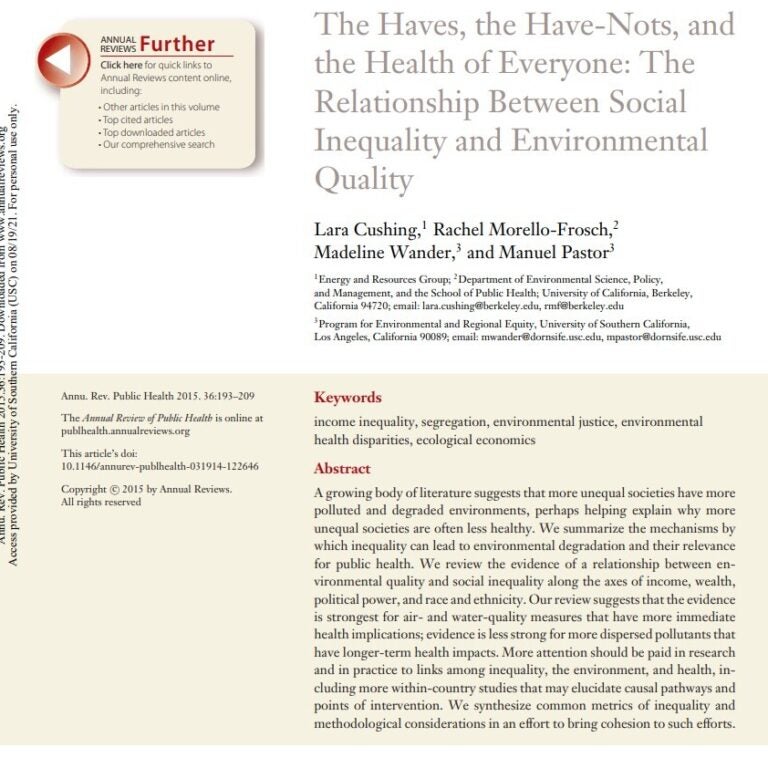March 2015
By Lara Cushing, Rachel Morello-Frosch, Madeline Wander, and Manuel Pastor
Please note: reports dated earlier than June 2020 were published under our previous names: the USC Program for Environmental and Regional Equity (PERE) or the USC Center for the Study of Immigrant Integration (CSII).
A growing body of literature suggests that more unequal societies have more polluted and degraded environments, perhaps helping explain why more unequal societies are often less healthy. We summarize the mechanisms by which inequality can lead to environmental degradation and their relevance for public health. We review the evidence of a relationship between environmental quality and social inequality along the axes of income, wealth, political power, and race and ethnicity. Our review suggests that the evidence is strongest for air- and water-quality measures that have more immediate health implications; evidence is less strong for more dispersed pollutants that have longer-term health impacts. More attention should be paid in research and in practice to links among inequality, the environment, and health, including more within-country studies that may elucidate causal pathways and points of intervention. We synthesize common metrics of inequality and methodological considerations in an effort to bring cohesion to such efforts.




